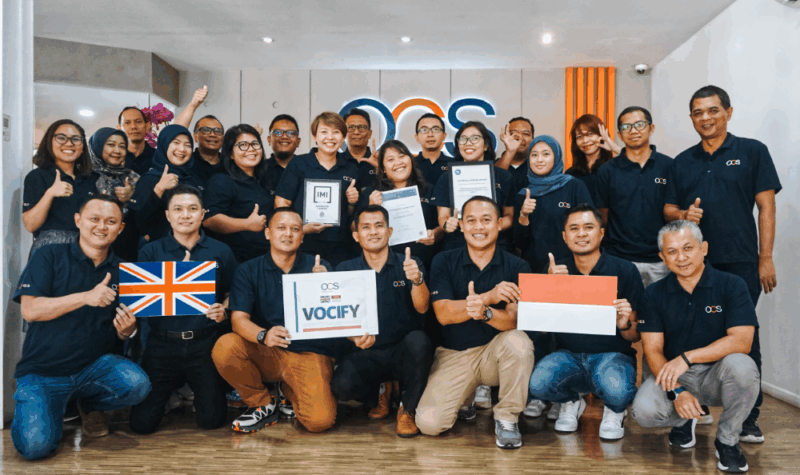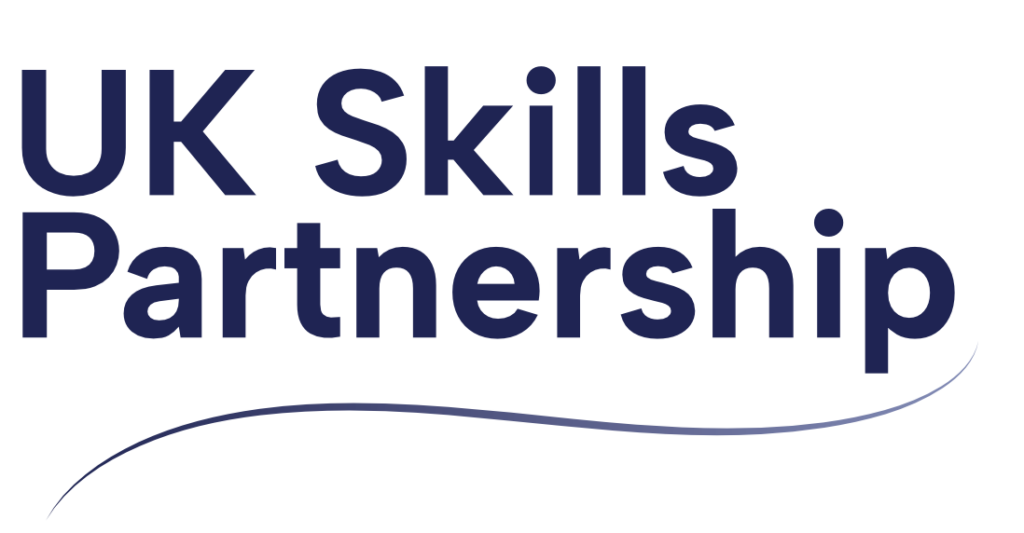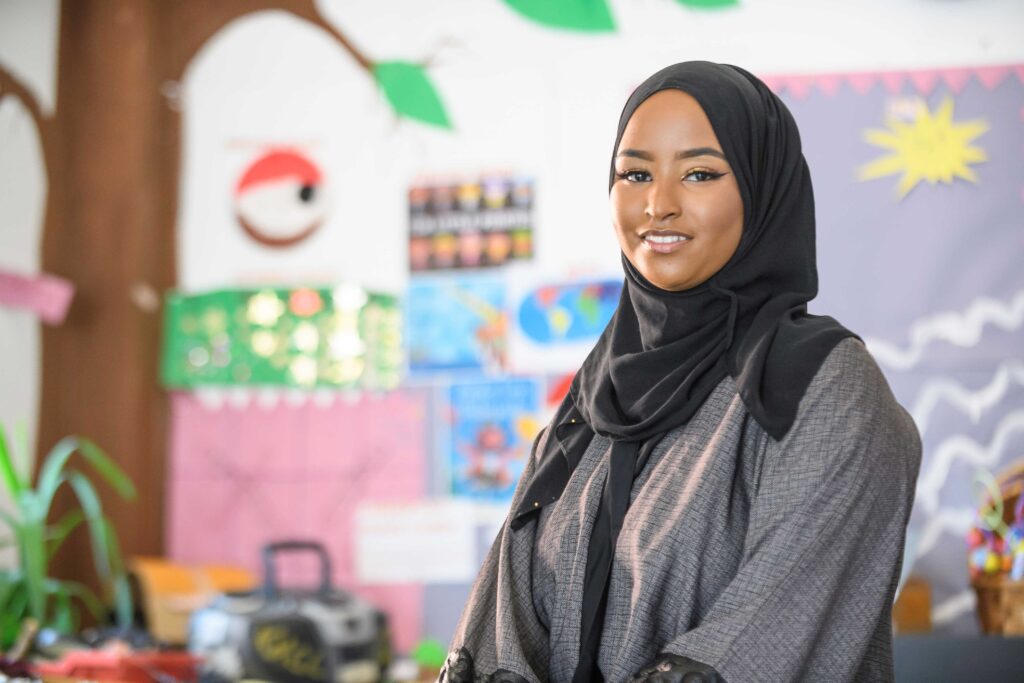Indonesia: OCS VOCIFY Green Skills
Summary
VOCIFY Green Skills Development & Apprenticeship Programme
The VOCIFY Green Apprenticeship Programme is a pioneering initiative launched through a UK–Indonesia collaboration, aimed at enhancing technical and vocational education and training (TVET) in Indonesia. It is supported by the British Embassy Jakarta, delivered in partnership with UK organisations and led by OCS Indonesia
VOCIFY, short for Vocational Amplify, is a bold initiative led by OCS Indonesia to transform vocational education for blue-collar workers into a pathway for economic resilience, Environmental, Social and Governance [ESG] alignment, and inclusive workforce development. Addressing Indonesia’s entrenched barriers to education and employment, VOCIFY blends UK-accredited Technical and Vocational Education and Training [TVET] standards with local compliance to deliver industry-ready and globally recognised green skills.
The initiative was inspired and guided by Jonathan Ledger, Skills & Professional Bodies Specialist at the UK Department for Business and Trade, whose pivotal mentorship enabled OCS Indonesia to build a sustainable bridge between aspiration and reality.
Strategic Objectives:
- Break the cycle of poverty through job-embedded, certified upskilling.
- Embed green, digital, and circular economy skills in frontline roles.
- Foster social inclusion by also targeting women and people who are neurodivergent and people with disabilities.
- Align with Indonesia’s Vision 2045 and the UN Sustainable Development Goals (SDGs).
- Position facility management as a driver of national ESG transformation.
At its heart, VOCIFY addresses the “intergenerational poverty” where limited education restricts employment opportunities, trapping generations in low-wage jobs. By focusing on inclusivity targeting (women (underrepresented in technical fields), people who are neurodivergent, and people with disabilities (often excluded due to inaccessible training) in later stage and in phases), and embedding green skills like digitalization and circular economy practices, VOCIFY aligns with Indonesia’s Vision 2045 and Sustainable Development Goals (SDG)’s 4 (Quality Education), 5 (Gender Equality), 8 (Decent Work), and 13 (Climate Action). This initiative not only boost operational efficiency but also fosters social mobility, transforming FM into a sector of empowerment and innovation.
OCS Indonesia adopted a private-to-private model, bypassing bureaucratic delays inherent in public-private partnerships (PPPs). Collaborating with UK institutions like the Association of Business Executives (ABE), Institute of the Motor Industry (IMI), and Chartered Institute of Logistics and Transport (CILT), OCS upgraded its comprehensive training modules from national standards to British standards, including circular economy content (UK Government, 2022). Hybrid approaches, on-the-job-and-off-training and digitised delivery through a learning management system overcomes geographical barriers, enabling scalable access for remote learners.
Curriculum design emphasises practical, industry-relevant skills: foundational modules on FM basics, occupational health and safety, and communication, in the first year of total-3-years-apprenticeship program, alongside advanced topics like practical energy efficiency and waste management. Inclusivity is embedded through the whole selection apprenticeship programme and mentorship for underrepresented groups, in later stage, including adaptive facilities and assistive starting 2028, ensuring alignment with MoM’s apprenticeship regulations (e.g., maximum 20% of workforce as apprentices, up to one-year duration).
VOCIFY’s launched at the UK-Indonesia Green Skills Collaboration Report event in February 2025 garnered acclaim from the British Embassy and Department for Business Trade, positioning it is a benchmark for private-led skills initiatives.
Externally, VOCIFY challenges vocational stigma, reframing FM as a pathway and stepping stone to meaningful careers. Its emphasis on inclusivity, e.g., gender equity and disability integration, has drawn praise for fostering diverse talent pools, aligning with global ESG trends.
Reception underscores the programme’s resonance with UK-Indonesia ties, as seen in joint statements emphasising skills for sustainable development. Stakeholders view VOCIFY as a practical embodiment of shared priorities in TVET reform amongst Indonesia and UK Governments, Industries, and Private Sectors.
Development Stage (2024):
- Audit of TVET standards under PP No. 68/2022 and the Indonesian Qualifications Framework (KKNI)
- Module development for 70+ training areas via bilingual LMS platform “OCS Ganesha”
- Licensing and regulatory alignment with MoECRT and MoM
Pilot Implementation (2025):
- Industry partnerships with Goodyear (automotive) and Lazada (logistics).
- Semester-based apprenticeships (March 2025–February 2026) integrating classroom and on-site training.
- Inclusion of green modules: circular economy, waste management, and energy efficiency.
Accredited Certification Phase 1 (2025):
- Certification by:
- ABE UK (Management & Leadership for all sectors)
- IMI UK (Automotive)
- CILT UK (Logistics )
Certification is portable across ASEAN, supporting regional workforce mobility.
- 30+ participants enrolled in pilot.
- Notable productivity and safety improvements in partner sites.
- Shift in mindset: vocational roles seen as technical and dignified.
- Commended by British Embassy and UK DBT during February 2025 bilateral launch.
- Increasing recognition from Indonesia market and chambers as a potential scalable model.
Path Forward (2025–2028):
- Full UK accreditation by 2026 to certify OCS national workforces and start beginning 2029 to certify industries (customers’ employees and public).
- Annual goal of 1,000 certified graduates by end of 2028.
- Sector expansion to renewable energy, healthcare, and data centres in upcoming phase.
- Partnership with Indonesian ministries for TVET incentives, tax benefits, and grant access.
- VOCIFY to serve as an ASEAN benchmark for sustainable workforce transformation.
VOCIFY is not merely a training programme. It is a catalyst for dignified work, ESG leadership, and inclusive economic development. It transforms vocational education from a last resort into a first choice to build future career path, creating a future where Indonesia’s workforce is skilled, recognised, and ready for the green economy.
By 2026, VOCIFY starts nationwide expansion and digital scaling for rural access with Phase 1 Accredited Certifications Endorsement from ABE, IMI, and CILT. Future phases will incorporate advanced modules (e.g., facility management in renewable energy, digital technologies-based AI, English business conversation) and extending endorsements with different skills and sectors, aiming 1,000 annual graduates by 2028. By end of 2028, the programme envisions complete institutionalisation as a fully accredited hub to certify the industries, offering certified pathways to external stakeholders and integrating with national TVET reforms for sustained impact.
Strategic alignment with incentives like MoECRT grants and tax reductions for green investments will sustain funding. Risks, such as regulatory changes or resource constraints, are mitigated through agile updates and industry collaborations. Ultimately, VOCIFY envisions Indonesia as an ASEAN leader in sustainable workforce development, digitalizing TVET for equitable and resilient growth.
To enhance, Indonesia’s human capital competitiveness, particularly against peers like Vietnam in ASEAN region, VOCIFY positions itself as a private-sector complement to government strategies, such as integrating TVET into investment promotion as outlined by Indonesia Deputy Minister Nurul Ichwan for Investment Promotion, Ministry of Investment and Downstreaming/ BKPM. By aligning vocational training with industry needs and leveraging fiscal incentives like tax deductions for company-provided training, the programme supports workforce readiness to attract high-quality investments, making skills development a competitive edge rather than a catch-up effort. VOCIFY’s adoption of international best practices, including dual-vocational models localised for Indonesia, bridges investment flows with local employment, skill transfer, and community uplift, ensuring sustainable investment builds long-term human capability.









